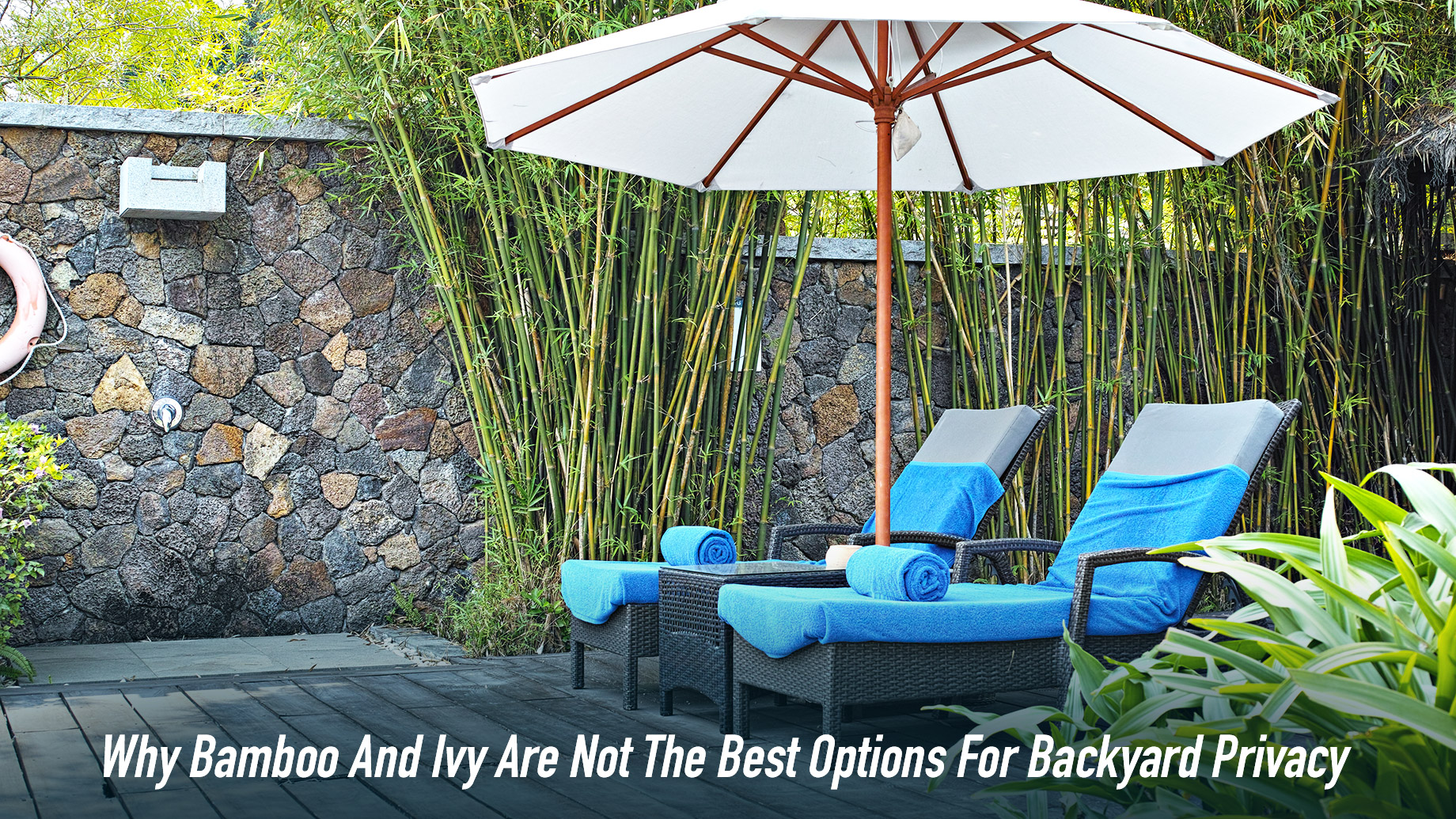
Bamboo is a diverse group of evergreen perennial flowering plants from the grass family Poaceae. These are the largest members of the grass family. They grow everywhere in the world, including in Asia, Europe, America, and Australia. These are known for being one of the fastest-growing plants. They grow into dense trees. They also have atmosphere cleaning properties.
Ivy Plant which is also known as Hedera is a species of evergreen climbing or ground creeping woody plants belonging to the plant family Araliaceae. These grow mostly in Northern Africa, Europe, and Central Southern Asia. It is also proven to be air purifying and works as an anti-oxidant.
Disadvantages of growing Bamboo and Ivy in the backyard
Although bamboo plants & Ivy plants have many benefits, they also have a lot of disadvantages which is why they are not the best option to use for backyard privacy. Some of these are listed below
Health Hazards
The bamboo plant is known for being used for building purposes and making outdoor furniture as it is resistant to moisture. People generally buy and lounge on patio sectionals in their backyards which could be made out of bamboo wood and may contain chemicals that can cause respiratory issues. The formaldehyde in Its stalk may cause breathing issues. Ivy plant If touched can also cause swelling, allergic reaction, and shortness of breath. They should be kept out of reach as their sap is dangerous to health.
Attracting Insects
The bamboo plant should not be grown in the backyard as It contains chemicals that attract mosquitoes which in turn can bite people and cause diseases. The ivy plant, on the other hand, is well known to attract spiders as they provide food from their sap to them. And because of their dense formation, they also work as homes to many insects.
Damaging property, ground and wall infiltration
The bamboo plant’s roots are thin and fibrous and can grow up to 2-3 feet, but running bamboo roots can travel up to 30feet and has the ability to push through brickwork, drains, patios, and cavities walls in turn damaging the property. An appropriate root/ rhizome barrier can be used in a new planting to control the spread of bamboo plants. If you planted them in your backyard for privacy then it needs more maintenance as It can be hard to control the roots from spreading even on the ground.
Ivy Plant is known to be one of the most destructive and invasive house plants. It provides shelter to spiders, bats, and other insects. It can easily damage old brick wood and vinyl sidings. The roots are very dense, they easily find small cracks growing into them leading to major damage. Even If by being dense they provide backyard seclusion, and they can easily outgrow anything that comes in contact with them for longer periods of time making them difficult to maintain.
Beneficial plants for backyard privacy
Some of the plants which are actually easy to maintain and beneficial for you are eastern red cedar which can be grown in the form of a hedge that provides full coverage to keep the prying eyes out. Boxwood works as a sturdy plant and provides fantastic privacy.
This is a slow-growing plant and easy to maintain. It can be shaped however you want. Chocolate vines are named due to their dark purplish-brown flowers. It remains green all year and can provide a great addition to backyard fencing. Bamboo and ivy plants should be avoided as there are many other great options to maintain your backyard with less work and more greenery.